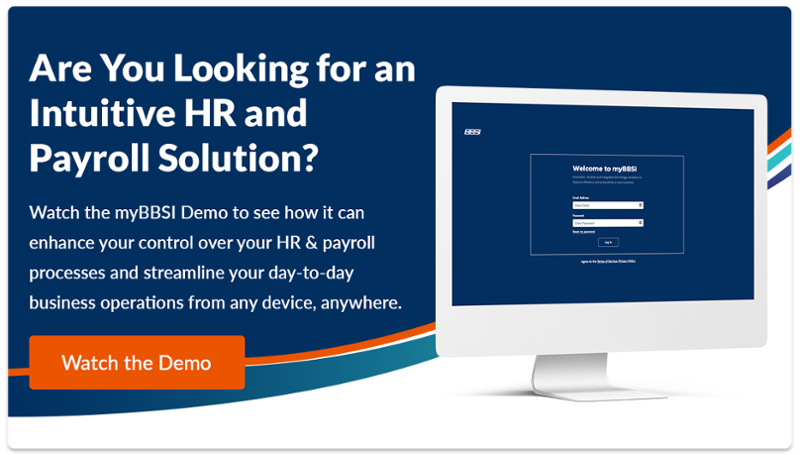
How to Avoid the 6 Most Common Small Business Payroll Mistakes
Not all business mistakes are equal, and small business payroll mistakes, in particular, can result in major penalties for business owners — from monetary fines to prison time. Aside from direct consequences, payroll mistakes also frustrate your employees. Underpayment can leave them in a tight financial spot, while overpayment and thoughts of future deductions can similarly stress them out. So, it’s crucial that you optimize your payroll processes to ensure timely and accurate results.
Below, we’ll look at six of the most common small business payroll mistakes employers make and how you can prevent or fix them.
The 6 Most Common Payroll Mistakes
1. Misclassifying Employees
The Fair Labor Standards Act’s (FLSA) establishment of numerous labor regulations includes laws related to employee overtime. If an individual works more than 40 hours per week, federal law requires them to be paid at least 150% of their hourly wage (i.e., time and a half).
But not all workers fall under FLSA protections. Regarding timekeeping and payroll practices, there are three groups you need to classify correctly to avoid fines, penalties, and employee frustration over payroll issues.
- Nonexempt employees: Employees must be paid overtime rates if they are not exempt from the FLSA’s overtime provision, which includes most workers. Whether the employee is hourly or salaried doesn’t matter.
- Exempt employees: Some professions are specified as exempt from the FLSA’s overtime provision, such as executives, administrators, farm workers, and dealership mechanics and these roles are typically salaried.
- Independent contractors: Workers designated as independent contractors, as opposed to employees, are not covered by the FLSA’s overtime provision. But as different states may set different requirements for which workers count as independent contractors, it can be very easy for a business to misclassify them.
2. Miscalculating Pay
Without an accurate timekeeping system, your business constantly risks miscalculating payroll. Administrators must juggle numerous calculations every time they handle payroll, including:
- Hours worked
- Overtime
- Paid time off (PTO)
- Health and 401(k) Benefits (and any pre-tax deductions)
- Garnishments (and any post-tax deductions)
Miscalculating any of these factors leads to payroll inaccuracies requiring later correction, and if corrections aren’t made promptly, they can result in separate fines and penalties. Administrators must also dedicate more time and effort toward fixing small business payroll mistake outside of the normal payroll process, along with employee frustrations and potential financial hardships resulting from incorrect payments.
Of all the paychecks that carry the greatest miscalculation risks, the last check provided to terminated or departing employees often causes the most trouble. This is because administrators might miscalculate or neglect to pay out accrued PTO.
A recommended best practice for terminations or departures is to cut two checks — one for hours worked in the final pay period and another for paying out PTO or anything else, such as severance. That way, you ensure proper payment is processed and don’t risk outstanding balances still owed to the employee should they approach a Labor Board or submit a litigation claim.
3. Keeping Incomplete or Inaccurate Records
Good recordkeeping is the foundation of all financial matters. For payroll, this starts with the documents and forms completed during an employee’s onboarding process, such as an I-9. I-9 forms are used to verify the individual’s identity and whether they’re authorized to work in the US. Any violations regarding these forms can add up quickly.
Of course, this recordkeeping diligence must extend throughout employment. Accurate timekeeping during each pay period and ongoing calculations of standard deductions and accruals (e.g., PTO, sick days) are necessities.
They’re important beyond payroll number-crunching as well. If an employee submits a complaint or files a litigation claim, having more than manual tracking written down on timecards will help to demonstrate compliance. Your payroll logs will be required to defend yourself against the claim, and incomplete or inaccurate records leave you without any evidence to back you up. And, should an employee have questions, you’ll need to be able to provide access for transparency.

4. Missing Important Deadlines
Businesses that miss important payroll and tax deadlines will be assessed significant fines and penalties. Without dedicated effort and scheduling, you might overshoot important deadlines for:
- Quarterly tax filings: Must be submitted by the end of the month after the following quarter.
- Year-end taxes: Generally due by the 15th of the fourth month following the end of a business’s fiscal year.
- W-2 forms: Employees must receive their W-2s for their own taxes by January 31st.
Per the IRS, late submissions of employee payroll taxes incur the following fines:
- 1 to 5 calendar days: An extra 2% is added.
- 6 to 15 calendar days: An extra 5% is added.
- Over 15 calendar days: An extra 10% is added.
- Over 10 calendar days after your first written notice or on the day you receive written notice to file them immediately: An extra 15% is added.
In cases of severe delinquency, interest added to the above penalties, property liens, civil and criminal sanctions, and prison sentencing are also possible repercussions.
Aside from federal deadlines, you’ll also have state-mandated deadlines to manage. For example, in California, terminated employees must receive a check on the day their contract ends or within 72 hours if the employee quits.
5. Using Incorrect Tax Rates
While most employee tax rates haven't changed for 30 years, the amount of income they apply to changes periodically. One tax employers must monitor annually for changes in their state is the unemployment tax (SUTA) rate.
SUTA rates are determined annually per company according to how many of your former employees applied for unemployment insurance in the previous year and other factors. For example, California notifies businesses between October and December of the coming year’s rate. If you don’t account for changing SUTA rates, you might end up owing a significant sum.
6. Forgetting To Send Tax Forms
Although providing your employees with W-2 forms is listed under item four, it’s significant enough to warrant its own inclusion. This is because failing to give employees their W-2 only hurts them by delaying their ability to file their own taxes, causing significant frustration.
But business penalties for late W-2 forms can also accumulate fast:
- Businesses with over $5 million in gross receipts: $50 per form if 30 days late or less (maximum of $536,000), $100 per form if more than 30 days late but submitted before August 1st (maximum of $1,609,000), and $260 per form if submitted after August 1st (maximum of $3,218,500).
- Businesses with $5 million or less in gross receipts: $50 per form if 30 days late or less (maximum of $187,500), $100 per form if more than 30 days late but submitted before August 1st (maximum of $536,000), and $260 per form if submitted after August 1st (maximum of $1,702,500).

How Small Businesses Can Avoid Payroll Mistakes
Your small business can avoid payroll mistakes by adhering to the following best practices:
- Create a calendar with reminders for important dates (e.g., pay periods and paydays, quarterly taxes, W-2 deadline, etc.).
- Conduct a quarterly audit or review of your payroll process to determine areas for improvement.
- Ensure all employees are informed about payroll processes and policies, providing company-wide updates as needed. Employees should be informed of:
- Pay period cycles and pay dates
- Estimation of when W-2s will be provided
- Meal breaks
- PTO accrual and how to request it
- Verify employee classifications internally (e.g., has their role changed?) and externally for state or federal requirements.
- Manage deductions (e.g., benefits, garnishments), such as remaining alerts for notices about mandatory garnishments (e.g., child support) or voluntary opt-out (e.g., allowed in California for some deductions).
- Implement accurate and thorough timekeeping and payroll systems that provide you with good records.
- Communicate with employees to determine if there are any changes (e.g., PTO balances, name changes, W-4 tax withholding changes).
- Conduct periodic recordkeeping audits (e.g., any requirement or employee changes, where timecards are kept) to ensure you have accurate logs.
How To Fix Payroll Mistakes When They Happen
If you find your business has made a payroll mistake, the steps below will help you rectify it quickly and with minimal penalties:
- Pay any late amounts, pay late fees, and file missing or incorrect paperwork as quickly as possible. Doing so will help demonstrate that you simply made a mistake and have no ill intent or ambitions of tax evasion.
- Communicate with any affected employees and collaborate on a resolution. Review your payroll policies and any changes to ensure transparency with employees.
- Document your problem-solving efforts.
- Communicate any changes that affect a large portion of your workforce (e.g., provide two weeks' notice for pay period changes).
If your payroll mistake was accidentally paying too much overtime, it's strongly recommended that you do not deduct the employee's check. Doing so may create significant employee dissatisfaction. Instead, if it was the business's mistake, show and explain the policy and simply inform them that their checks will be correct moving forward.
Partnering With BBSI for Payroll
Organizations looking to optimize their payroll can easily do so with one best practice: Partnering with BBSI and your local Business Unit team. BBSI Business Units help employers:
- Audit their payroll process to determine how it’s been conducted and recommend improvements.
- Determine a new payroll process and plan.
- Use payroll conversations to foster employee buy-in and help with uncomfortable or difficult discussions.
- Become familiar with laws, regulatory compliance, and what to monitor.
- Process payroll with hands-on training and assistance through the first few cycles.
Aside from Payroll Administration, BBSI also provides employers with access to our proprietary myBBSI portal and payroll system. With myBBSI, you can:
- Eliminate time-consuming and error-prone data entry with digital time tracking.
- Manage PTO, retirement, and benefit plans.
- Centralize employee personnel file management.
- Provide employees with a user-friendly dashboard and management system for viewing or updating personal information, pay stubs, W-2s, and more to minimize administrative burden.
- Configure access individually (e.g., CPAs, third-party vendors).
- Gather job cost insights based on departments or other employee groups.
- Generate GL exports for seamless accounting system data import.
- Cut checks immediately without additional help (e.g., termination).
BBSI’s Business Unit teams are passionate about the Payroll and HR Consulting services we provide. With proven expertise and resources at our disposal, we strive to quickly build relationships and become your partner. To find out more about how BBSI can help optimize your payroll and other business processes, contact your local Business Unit today.
Disclaimer: The contents of this white-paper/blog have been prepared for educational and information purposes only. Reference to any specific product, service, or company does not constitute or imply its endorsement, recommendation, or favoring by BBSI. This white-paper/blog may include links to external websites which are owned and operated by third parties with no affiliation to BBSI. BBSI does not endorse the content or operators of any linked websites, and does not guarantee the accuracy of information on external websites, nor is it responsible for reliance on such information. The content of this white-paper/blog does not provide legal advice or legal opinions on any specific matters. Transmission of this information is not intended to create, and receipt does not constitute, a lawyer-client relationship between BBSI, the author(s), or the publishers and you. You should not act or refrain from acting on any legal matter based on the content without seeking professional counsel.
